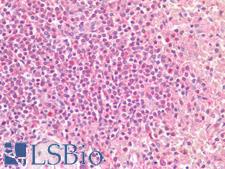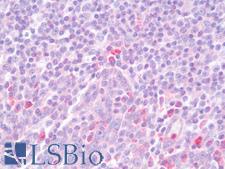Login
Registration enables users to use special features of this website, such as past
order histories, retained contact details for faster checkout, review submissions, and special promotions.
order histories, retained contact details for faster checkout, review submissions, and special promotions.
Forgot password?
Registration enables users to use special features of this website, such as past
order histories, retained contact details for faster checkout, review submissions, and special promotions.
order histories, retained contact details for faster checkout, review submissions, and special promotions.
Quick Order
Products
Antibodies
ELISA and Assay Kits
Research Areas
Infectious Disease
Resources
Purchasing
Reference Material
Contact Us
Location
Corporate Headquarters
Vector Laboratories, Inc.
6737 Mowry Ave
Newark, CA 94560
United States
Telephone Numbers
Customer Service: (800) 227-6666 / (650) 697-3600
Contact Us
Additional Contact Details
Login
Registration enables users to use special features of this website, such as past
order histories, retained contact details for faster checkout, review submissions, and special promotions.
order histories, retained contact details for faster checkout, review submissions, and special promotions.
Forgot password?
Registration enables users to use special features of this website, such as past
order histories, retained contact details for faster checkout, review submissions, and special promotions.
order histories, retained contact details for faster checkout, review submissions, and special promotions.
Quick Order
PathPlusTM CD274 / B7-H1 / PD-L1 Antibodies
PDL1 (CD274), or programmed cell death-ligand 1, is a transmembrane protein expressed in B and T cells that acts as an immune checkpoint regulator by suppressing the T-cell response. The primary receptor for PDL1 is PD1 (PDCD1), and binding of PDL1 to PD1 suppresses T cell migration, proliferation, and restricts tumor cell death. High levels of expression of PDL1 are associated with poor prognosis in certain carcinomas, and expression is also associated with EGFR mutations, the onset of which may directly lead to upregulation of PDL1. Current trials involving PDL1 inhibitors have shown impressive results in treating advanced stage cancers such as melanomas. This protein is expressed in the cytoplasm and membrane in normal immune cells, placental trophoblasts, and some cancers.
References: Dong, H. et al. Nat Med. 2002 Aug;8(8):793-800. Epub 2002 Jun 24; Zhang, 2016; Chen 2015; Tang 2015; Nat Med 2002(8):793
2 PathPlusTM Antibodies


☰ Filters
Products
Antibodies
(2)
Type
Primary
(2)
Target
CD274 / B7-H1 / PD-L1
(2)
Application
IHC-P
(2)
Host
rabbit
(2)
Product Group
PathPlus Cancer
(2)
PathPlus Cancer Pathology
(2)
Clonality
polyclonal pc
(2)
Format
Unconjugated
(2)
Publications
No
(2)

Cancer Pathology
Cancer
Fast Shipping
CD274 / B7-H1 / PD-L1 Rabbit anti-Human Polyclonal Antibody
IHC-P
Unconjugated
50 µg/$395

Cancer Pathology
Cancer
Fast Shipping
CD274 / B7-H1 / PD-L1 Rabbit anti-Human Polyclonal Antibody
IHC-P
Unconjugated
50 µg/$395
Viewing 1-2
of 2
product results










